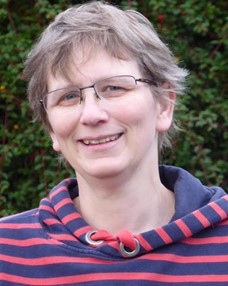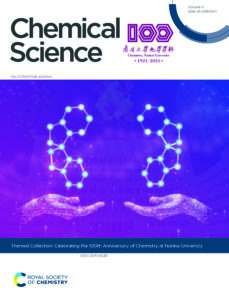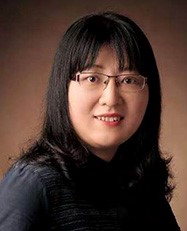To further thank and recognise the support from our excellent reviewer community, we are highlighting reviewers who have provided exceptional support to the journal over the past year.
This month, we’ll be highlighting Venkat Kapil, Shina Kamerlin, Douglas Stephan and Ruth Brenk. We asked our reviewers a few questions about what they enjoy about reviewing, and their thoughts on how to provide a useful review.

Venkat Kapil, University of Cambridge. I develop advanced computational methods in the domains of high-end electronic structure, statistical mechanics, and machine learning to push the accuracy and efficiency of first-principles simulations. I apply them to study molecular systems at bulk, interfaces and in nanoscale confinement.

Shina Kamerlin, Georgia Institute of Technology. I’m a computational biochemist, my research group uses a variety of molecular simulation approaches to understand the chemical basis for complex biological problems. We are particularly interested in understanding how new proteins evolve, and how they can be engineered to be used in biomedical and industrial applications.

Douglas Stephan, University of Toronto. Our research is focused on frustrated Lewis pairs and main group Lewis acids in the activation of small molecules and derived applications in catalytic reactions and organic synthesis.

Ruth Brenk, University of Bergen. In my group, we make use of the 3D structures of target molecules to design new ligands that have the potential to be further developed to new drugs. Currently, we work on RNA and protein targets, mainly in the field of antibiotics.
What encouraged you to review for Chemical Science?
Shina Kamerlin: I want to support the journal. As a long-time RSC member, I very much value our society, and supporting the RSC including through peer review for RSC journals is important to me. Furthermore, Chemical Science has been a great success story as a flagship journal for the RSC, publishing excellent science, as well as providing a best-practice template for what a high-quality Diamond Open Access journal could look like.
Douglas Stephan: Chem Sci is a journal focused on a broad range of exceptional chemistry where the editorial standards rank with the best in chemistry.
What do you enjoy most about reviewing?
Venkat Kapil: I learn a lot about the latest advances in the field.
Douglas Stephan: I always learn something from reviewing a paper. It may be new techniques, new reagents, or simply new chemistry.
Ruth Brenk: I enjoy reviewing high quality science about topics that interest me. It is also fun if I can give some advice on how to improve an article, but for sure, it’s most fun if I can recommend an article for publication without any further revisions needed.
What are you looking for in a paper that you can recommend for acceptance in Chemical Science?
Shina Kamerlin: First of all, scientific rigor is really important to me as a reviewer. Is the work done to the highest quality standards in the author’s field? Are there any glaring technical errors that need to be addressed? Secondly, does the paper push forward the boundaries science? Are there important conceptual or methodological advances in the work? I am also mindful of the broad readership Chemical Science, and consider whether this is a manuscript that will be appreciated also by other chemists (and chemistry-adjacent scientists from other disciplines), not just those within the authors’ immediate area of expertise? Finally, a well-written paper that reads well is important, in that the paper is ideally well-structured with arguments that can be followed in a logical way, without confusing the readers, especially those that are not experts in the immediate area of the paper.
Venkat Kapil: New scientific discoveries or innovative methods that advance the state-of-the-art in the broad subject of Chemistry. In terms of the scientific methods, I set the same benchmarks that I set for myself. I also emphasize the need to provide data / code for reproducibility.
What advice would you give a first-time author looking to maximise their chances of successful peer review?
Ruth Brenk: 1) Put a lot of effort in the writing and using precise language. A reviewer is not an editing service. 2) Chose a journal in which your article fits in. Find out in which journal similar articles have been published, they are probably a good start.
Do you have any advice to our readers seeking publication in Chemical Science on what makes a good paper?
Douglas Stephan: As I mentioned the standards are very high, so I would encourage authors to be thorough, in the chemistry, the writing and referencing. In addition, I would say be your own worst critic, so you can see the flaws before the referees.
Are there any steps that reviewers can undertake to improve the quality of their review?
Shina Kamerlin: It’s important that reviewers remember that even if they don’t necessarily know the authors personally, these are colleagues. The authors may include students as well, for some of whom this may be their first paper and experience publishing. It is important to be mindful of the fact that one is interacting with real people during the review process, and even if one disagrees with methodology or conclusions of the paper, the aim is to be constructive in conveying this information. Think about how you would feel if you were the one receiving the report you are writing, and write the kind of report you would like to receive yourself. The ideal report will highlight strengths and weaknesses of the paper, be specific when it comes to weaknesses (rather than vague or generalized comments that can be hard for the authors to improve from), and ideally provide suggestions as to how the weaknesses can be addressed and improved upon. The hoped for outcome would be that upon receiving the review, the authors receive the information they need to improve their work to the level that it is either suitable for publication in Chemical Science, or another high-quality specialist journal, as relevant.
How do you balance reviewing with your other activities?
Douglas Stephan: I often use weekends or evenings as a great time for reviewing. You read something interesting and offer a constructive assessment, while trying to place the work in larger context for the editor, and at the same time trying to help the authors make an even better paper.
Tune in next month to meet our next group of #ChemSciReviewers!
If you want to learn more about how we support our reviewers, check out our Reviewer Hub.
Interested in joining our ever-growing reviewer community? Apply here now!






















